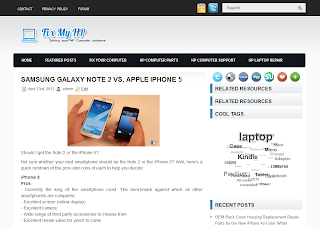There are a lot of anti-virus and Internet Security software available on the market today, however a lot of them carry a hefty price tag, and while some of them are really good, a lot of them do things that software available for free can do just as well, if not better in some cases. I've been running nothing but free software on my PCs for the past couple years, and I honestly can't remember when last I had a problem with viruses, spyware or malware. While I don't guarantee that you won't suffer any malicious software problems ever again in your life, I do guarantee you that following this guide will definitely bring you a lot closer to living a headache free life when it comes to keeping your computer healthy.
Step 1: Ditch Internet Explorer.

Seriously. Especially if you're running an older version such as IE6, its really time to upgrade. While Internet Explorer has been enjoying it's position as the de facto Internet browser for many years, that is rapidly changing, as many vulnerabilities have been discovered in it and better, faster and more secure browsers have come on the market. Do yourself and your PC a huge favor and download either
Google Chrome or
Mozilla Firefox. I prefer Google Chrome, but it really boils down to a matter of preference, as tests carried out on both browsers present them equally as favorable.
Step 2: Get some (free) anti-virus protection.
Do: Download Microsoft Security Essentials
Don't: Download AVG, or any other "free" anti-virus software.
MSE is completely free, is from Microsoft (the makers of Windows) and is more than adequate for most users' needs. AVG free is a stripped down version of AVG Pro, and while it probably would give you as much protection as MSE, it will constantly bug you about upgrading to pro. MSE just runs in the background, updates automatically and only seeks your attention when it really needs it.
Step 3: Keep your computer clean and organized
CCleaner is a free utlility that deletes temporary files, internet history and cleans the system registry. Use it to keep your hard drive from getting bloated with temporary internet files (and to prevent people from snooping on your browsing habits).
Make sure to grab
Defraggler as well (From the same company that makes CCleaner, and it's also free). Its a hard disk defragmenting utility thats leaps and bounds better than Window's built in defragment software.
Schedule both to automatically run once weekly, bi-weekly or monthly (depending on your level of computer usage) and it will keep things moving along smoothly.
Step 4: Get add-ons that help keep you safe online
If you're using Firefox, check out the following addons:
Noscript - Blocks Javascript and other scripts from running without permission.
http://noscript.net/
Tor - Allows you to browse the internet anonymously.
https://www.torproject.org/torbutton/
Adblock - Blocks annoying ads and tracking cookies.
https://addons.mozilla.org/en-US/firefox/addon/adblock-plus/
If you're using Chrome:
Like Noscript, but for Chrome -
https://chrome.google.com/webstore/detail/odjhifogjcknibkahlpidmdajjpkkcfn
Adblock for Chrome -
https://chrome.google.com/webstore/detail/gighmmpiobklfepjocnamgkkbiglidom
Step 5: Be smart!
That email you just got saying you won a lottery that you never signed up for? DELETE IT! That ad showing you how to make $3000 a day at home browsing the Internet? IGNORE IT! As the old saying goes, if its too good to be true, it probably is.
These emails and websites lure you into giving up your personal information that could be used for nefarious means (sometimes even Identity Theft). Use some common sense, and if you're still not sure Google it. Uncovering a scam is often as easy as searching for the website name plus the word "scam". (For example if you're unsure about freemillions.com million dollar giveaway, just google "freemillions.com scam")
DISCLAIMER: These information provided in this article is for educational purposes only and does not guarantee any specific results or outcomes. Follow at your own discretion.
